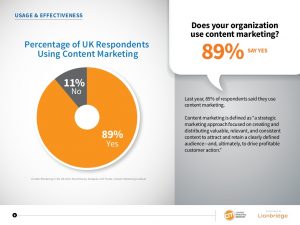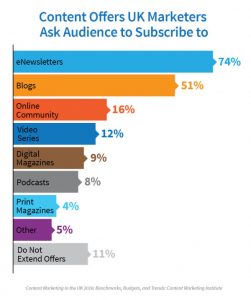I wanted to start by covering 2 of the most common questions searched online according to results on www.answerthepublic.com: What is SEO? What is a great SEO strategy for my business? and relate them to the experiences I’ve had with a friend and colleague who runs her own online business.
Please let me know in the comments below if you find this helpful or like and share the post with your social media. This blog follows my completion of the Search and Social Media Marketing course at The University of Salford.
What is SEO?
First of all, SEO means Search Engine Optimisation and describes how we take your business and increase your rankings on a search engine such as Google or Bing. The aim is to bring the listing for your website or physical store to the top of the search results and ultimately increase your business revenue.
There are many different search engines worldwide, I have listed the top 2 in the western world; however, the same strategy can be used no matter which engine or device is used to find you.
But how does SEO affect my business?
So you have a store and decided you needed a website to raise public awareness of your business and increase sales? If you remember the last time you looked for a product or service online, when was the last time you looked past the first page of results? Now imagine your business is buried somewhere on page 200.
The opportunity to connect with a customer falls dramatically the further you get from the top spot. But don’t worry, a great SEO strategy will put you on the first page, even the coveted no.1 spot.
If you have a physical store the concept is little different from measuring and increasing footfall. If they can find you and have a look, they’ll come to buy.
In Great Britain, 82% of adults age 16 or over use the internet daily. Image: courtesy of the Office for National Statistics:
What is a great SEO strategy?
Your strategy should attack 4 key areas and I will cover them here briefly. For more information I will write about each one and the tools that can help you in further blogs if you like when my own website is running:
- Content
- On-site optimisation
- Off-site optimisation
- Technical optimisation
Some of these you can look at right now, there are many free tools and trials you can use which only need your time. Alternatively, if you want to outsource this work, you will have a better understanding of the what’s involved and be less likely to end up talking to someone who can’t deliver what they promised or worse, could actually harm your rankings.
Content
Content is king and search engines are designed to provide you with the content you’re searching for using powerful programs to search the internet for the answers you need.
Are you updating your website regularly and giving your customers a reason to keep checking back with you? Have you asked your customers to subscribe to your content?
Subscribing lets you collect more information about your customers which in turn lets you shape your marketing and products more effectively. Subscriptions enhance brand awareness and open up additional revenue through repeat custom and word of mouth recommendations.
On-site optimisation
This is where we make sure your website clearly states what an Internet user can find there. What sort of search terms are your customers using to find your product? Do your Keyword Research, there are many free tools to choose from.
Off-site optimisation
Are you using Social Media to drive traffic to your business? If you have a physical store, make sure you have updated all the local business directories with your business name, address and contact details so your customers can discover you.
Have the local or national press covered your products? Make sure they put a link to your site/social media in their online press. A link from a large trusted company is very valuable but is only of use to you if you are creating great content.
Take care, while Back-links are a very powerful way to increase your search ranking, don’t ever be tempted to buy them. Search Engines prefer organic growth, relevant content and user generated content and they know all the shady tricks.
If you buy back-links from someone don’t be surprised if Google blacklist your site and no-one ever finds it. It’s not worth the risk.
Social Media is making a huge impact on our lives and is here to stay no matter what it may look like in future, take a look at some of the condensed statistics.
It’s best to think of Social Media as the TV of the 1960’s + 70’s. Each Social Media outlet is like a TV channel, and each one has different viewers and different content.
Knowing your customer has always been a critical cornerstone of great business, find out who they are and what social media they use and reach out, make a tailored campaign for their demographic.
Remember, a great campaign on Facebook won’t automatically do well on Instagram. Measure, test and review regularly. Making deals with online influencers, who already have large active communities on YouTube or Social Media, could generate a lot of traffic to your business, quality back-links and shares and is certainly worth pursuing.
Before moving on you may think Social Media is for young people, but did you know the fastest growing demographic on Instagram in 2016 are 42-48-year-old women taking ‘selfies’?
Technical SEO
Testing your website is fit for purpose and a great experience for your customers is something that will need constant review to stay ahead of your competitors. Have you made a risk assessment yet? What if your strategy doesn’t work or, if it does, can your website handle the increased traffic, what will it cost?
Is your website Mobile friendly? open your website in a browser and drag the corner to change the size of the window, did your website respond? According to the regulator Ofcom we are spending 2 hours every day on our Smartphone, more than Laptop or PC. If your customer can’t review your business on their phone before making a purchase decision, they probably won’t consider you at all.
Also, use tools to check for errors on your site, missing pages or images and make sure you have all the webmaster tools installed. Google+ Google Analytics and Adwords are powerful free tools, use them to test the effectiveness of your campaigns.
When you try to measure your return on investment you may be frustrated by the lack of tools or data available for the social media platforms. Don’t be disheartened, while it’s often very difficult to track your customers’ online journey before they found your site, please note that using social media will grow brand awareness. You’re taking a billboard and putting it in front of a potential customer, inside their phone and when the time comes for them to make a purchase your name will be one they consider.
Implementation
To demonstrate how you can implement SEO strategy principles in your business I’ll show you a quick example from my own experience. Many of my friends are business owners, and one of them jumped at the chance to be my test subject.
We studied her Facebook community page and later her website, which is run by a parent company in the USA for whom she is an independent demonstrator for their products.
- We quickly found the website is not mobile friendly, and
- Often the server supporting her page goes down.
- Her page is a separate website linked within another a bit like Russian Dolls which makes it difficult for search engines to index her content.
- It does have great domain authority due to the links from the parent site which has backlinks from Today.com and dmoz, the business directory.
She has a great start but there is room for a lot of improvements.
SEO Fixes and Strategy
My first suggestion is to set up her own website for complete control. She can either get someone to do this for her or buy some web space and register a domain name herself.
WordPress is a great tool powering millions of websites, including this one, is customisable and e-commerce ready.
Then she should set up some links to her new website, e-bay page and all social media channels and tie in all her Social Media accounts to each other so that her existing communities on YouTube, Facebook and Pinterest can mingle, grow and contribute their own content with likes, comments and shares.
Her business sells craft tools to make handmade cards and decorations, she is ideally placed to create a page on Instagram, a photo sharing site that allows the user to create a 2200 character post and use hashtags to create or join existing conversations with the amazing products her business offers.
By up-cycling content between platforms, she can reduce some of her workload, by presenting the same content in different ways.
Finally, creating a documented business strategy, with clearly defined goals, sales targets and understanding of the risks and costs involved will let her push her business forward. A review of her customer profiles will clearly identify who her core customers are and shape her marketing to be more relevant with reduced concerns about whether it will work or not.
Finally, she should set weekly and monthly reviews in place so she can adapt her strategy as the measured results come in.
Conclusion
Thanks for stopping by, I trust this has helped your understanding of what is SEO? Please like and share the post and if you have any questions or ideas for further blogs please comment.




